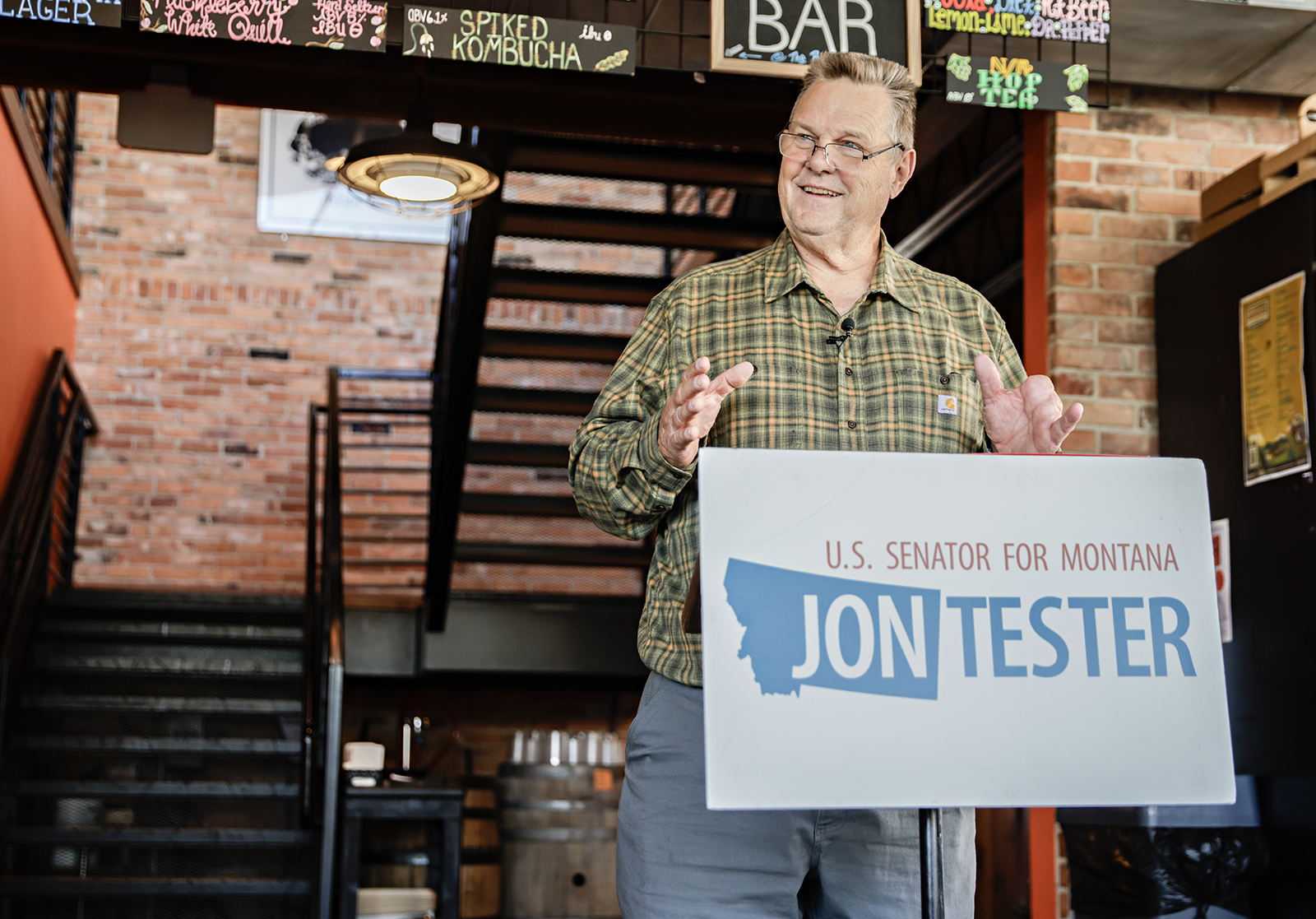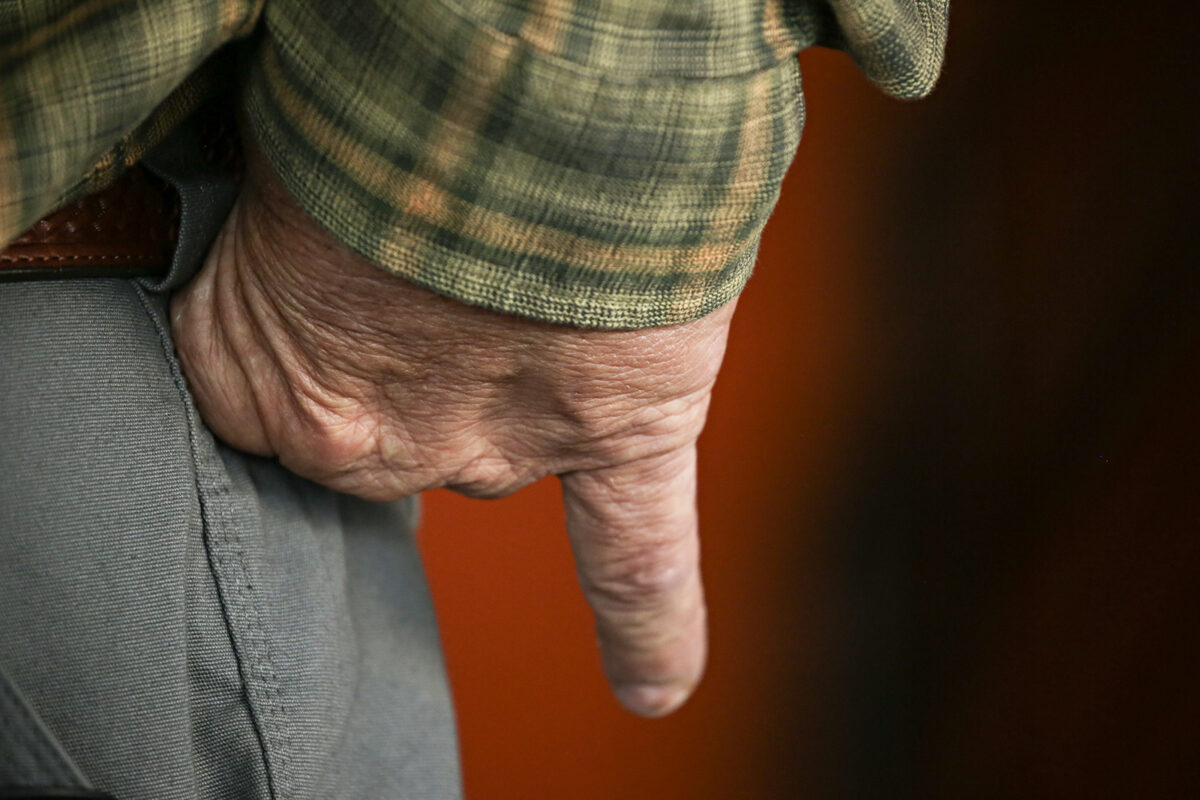Tester Unveils Housing Proposal, Criticizes Out-of-State Wealth During Kalispell Stop
The senator on Friday announced a plan to provide up to $15,000 in tax credits for first time home buyers, citing a need for workforce housing across Montana
By Denali Sagner
U.S. Sen. Jon Tester on Friday unveiled a plan to provide tax credits to first-time homebuyers during a press conference in Kalispell.
Joined by Flathead Valley residents and business representatives, Tester announced his First-Time Homebuyer Tax Credit Act, which seeks to establish a refundable tax credit worth up to 10% of a home’s purchase price — up to a maximum of $15,000 — for first-time homebuyers. The senator described the legislation as a crucial step towards lowering the cost of housing in the Flathead Valley, and across Montana, where the booming real estate market has driven up prices, pushing many long-term residents out of their homes.
“I do not have to tell the folks in this room that the cost of housing is a real economic inhibitor here,” Tester said. “It doesn’t allow our families, young and old, to be able to purchase a home.”
Tester called the proposal a “commonsense bill” that will help keep “lifelong Montanans in their communities” and support “the hardworking folks that power our schools, our hospitals, our law enforcement agencies, our small businesses and so much more.”
The bill is distinct from the $25,000 first-time homebuyer down-payment relief plan proposed by Vice President Kamala Harris.
Seeking wide-open spaces and, in some cases, a refuge from liberal policies, thousands of new residents flocked to Montana in the post-pandemic years, driving up the cost of housing and putting outsized pressure on the state’s resources.
The U.S. Census Bureau estimates that since the 2020 census, 51,600 more people have moved into Montana than have relocated elsewhere. The National Association of Realtors recently ranked Montana the least affordable state in the country in an analysis of national housing trends. Between 2018 and 2023, the median home sales price in the state rose from $266,473 to $505,419.
Joining Tester at the press conference, Whitefish couple Rick Guenther and Nancy Cronin recounted their struggle to find housing after a corporation purchased their home and forced them out in a matter of 30 days.
“We both work. We work hard. We love being there,” Guenther said of Whitefish. “It just got to the point where, for local people, it’s just very hard to afford housing.”
Brian Aegerter, general manager for the PPC Business Unit at Applied Materials in Kalispell, said affordable housing is critical for the company as it builds out its semiconductor manufacturing in the coming years. In order to meet the demands of the industry, Aegerter said, the Flathead Valley will need “policies that strengthen the opportunity to improve Montana’s talent pipeline.”

In many communities, rising housing costs have created a rift between longtime residents and out-of-state-transplants — a tension Tester eagerly seized on during his appearance in Kalispell.
“We all know the rich out-of-staters are buying up land and houses, but we’ve got to make sure that Montanans can afford to live here and stay here,” Tester said.
Though technically on official business on Friday, Tester’s rhetoric around “rich out-of-staters” reflected a recurring theme in his campaign against businessman Tim Sheehy, which has sought to paint the Republican as an out-of-touch transplant to Montana. Democrats have called Sheehy a “wealthy out-of-stater” who moved to Bozeman to “play cowboy” and criticized his ties to Wall Street financiers and status as a multi-millionaire.
Sheehy is leading Tester in most polls; however, Tester on Friday said he feels “very, very good” about his chances in November.